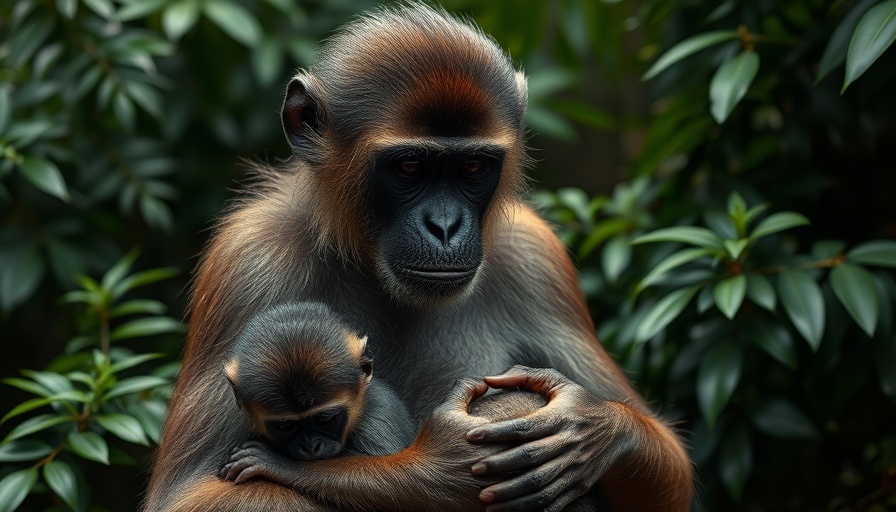
Understanding Primate Grief: What Macaque Mothers Teach Us
Recent observations from anthropologists at University College London have revealed that macaque mothers in bereavement respond in strikingly different ways compared to humans. While one might expect a mother primate to exhibit signs of sadness or lethargy after the death of an infant, these macaque mothers displayed a short period of physical restlessness instead. This may resemble a protest rather than a deep emotional response.
The Protest Phase: A Unique Response to Loss
During the first two weeks following the loss of an infant, the bereaved macaque mothers actually spent less time resting than their non-bereaved counterparts. This brief surge of activity has been likened to a protest phase noted in other studies of mother-infant separation in primates. Interestingly, researchers found no evidence of prolonged grief symptoms such as appetite loss or extended periods of despair that characterize human responses to loss.
A Window Into Evolutionary Thanatology
This study sheds light on evolutionary thanatology, which explores death and grief across various species. The findings suggest that emotional responses to loss are not universally experienced. By understanding these differences, we begin to chip away at the notion that grief is solely a human experience. These insights could pave the way for further inquiries into how various species cope with loss, expanding our understanding of emotional intelligence among animals.
The Importance of Observational Studies
Conducted at the Caribbean Primate Research Center, the study involved monitoring the behavior of 22 macaque mothers. Utilizing advanced observation tools, such as smartphones and CyberTracker software, researchers meticulously recorded a range of behaviors, including feeding and grooming.
Reflection on Grief: What It Means for Humans
As we reflect on these findings, it challenges the narrative of grief as a monolithic experience and raises questions about our own responses to loss. Are there ways in which we can learn from primates to process grief differently? The study invites us to think critically about the nature of bereavement across species and what it means within our own lives.
Macaque mothers' behavior might not align with human grieving, but it opens doors to understanding the complexities of emotional responses in the animal kingdom. As we delve deeper into studies that challenge our perceptions, we may discover more about our own nature, our feelings, and how to cope with loss.
 Add Row
Add Row  Add
Add 




 Add Row
Add Row  Add
Add 


Write A Comment